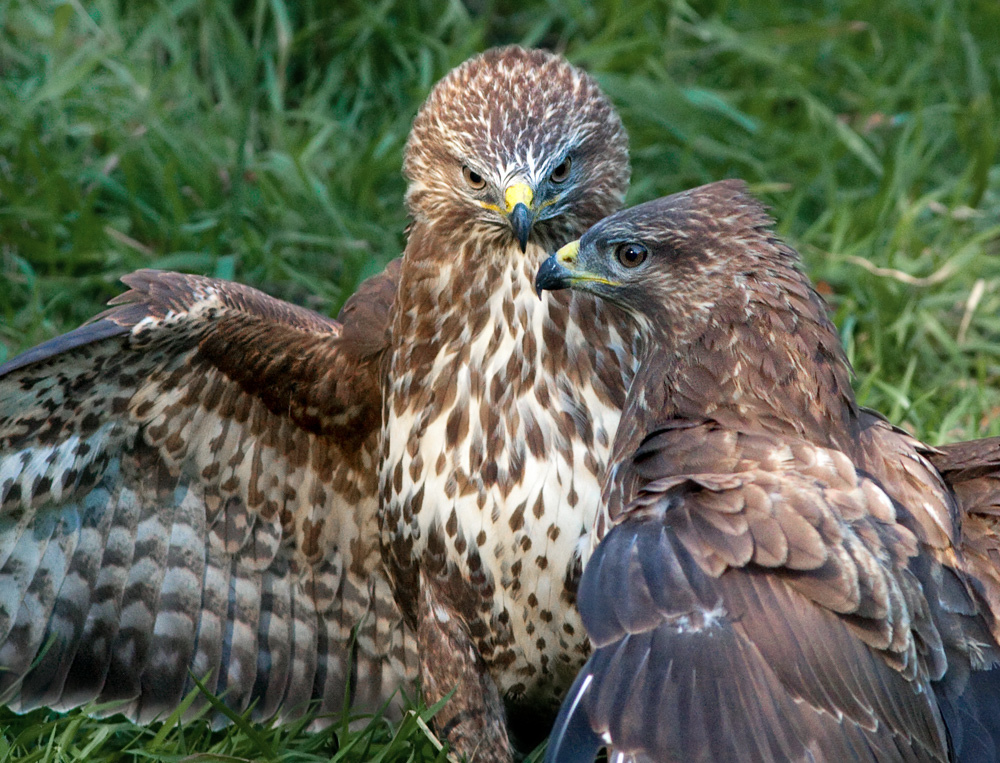Fresh concerns about the Scottish Government’s failure to tackle wildlife crime will be raised this week after the collapse of a key legal action against a landowner.
Public prosecutors have abandoned a case against Andrew Duncan, the owner of Newlands estate in Dumfriesshire. The case was one of the first few to be brought under a new “vicarious liability” law attempting to make landowners responsible for the crimes of their staff.
William Dick, a gamekeeper formerly employed by Duncan, was convicted in August 2015 of illegally killing a bird of prey. He appealed, but his appeal was rejected by a majority at the High Court in July 2016.
According to appeal judges, Dick was seen by two witnesses throwing stones at an injured buzzard. “He then stamped his foot deliberately onto the bird a number of times,” recorded the High Court judgement. “The bird stopped moving.”
Vicarious liability proceedings against Duncan began in August 2015, and were repeatedly adjourned. But now the Crown Office and Procurator Fiscal Service (COPFS) have confirmed that charges have been dropped.
All cases are continually kept under review, said a COPFS spokesman. “After taking consideration of the full circumstances of this case, and all of the available evidence, Crown Counsel concluded that it was not in the public interest to continue the case to trial.”
He added: “COPFS remain committed to tackling raptor persecution and there is a strong presumption in favour of prosecution of the cases reported to us where there is sufficient evidence and it is in the public interest to do so.”
Wildlife groups, however, have concerns about the decision, and are planning to raise them at a hearing in the Scottish Parliament’s environment committee on 18 April. The committee is considering calls for the introduction of a licencing system for game bird shooting that could penalise estates linked to wildlife crime.
“We are disappointed that this case has not been seen through to its natural conclusion,” said Duncan Orr-Ewing, head of species and land management at the Royal Society for the Protection of Birds in Scotland.
“Vicarious liability is not tackling driven grouse moor problems, and we are pressing for the licensing of game bird shooting as in other countries.”
Orr-Ewing pointed out that game bird shooting was licensed in 14 other countries. So far there had only been two successful vicarious liability prosecutions, and they had depended on very high standards of proof, he said.
The Scottish Wildlife Trust described vicarious liability as an important step in the fight against wildlife crime. “We need to understand whether there is anything that can be learned from this case being dropped that could inform future investigations,” said the trust’s conservation director, Susan Davies.
“Law-abiding landowners and the wider public are united in wanting to see an end to these shocking wildlife crimes, which means effective use of all the legislative tools available.”
The Scottish Raptor Study Group was also interested to know what factors led to the Crown Office decision. “Vicarious liability appears not to have been the magic formula for curbing raptor crime that some had imagined that it would be,” said the group’s secretary Patrick Stirling-Aird.
“That is why we have lodged a petition to the Scottish Parliament for the introduction of a system of game bird shoot licensing as a necessary additional measure.”
After Dick’s conviction, Newlands estate’s memberships of Scottish Land and Estates (SLE) and its Wildlife Estates Scotland scheme were suspended. The position is now being reviewed.
“The Crown Office arrived at its decision after a protracted and exhaustive examination of the evidence,” said Tim Baynes from SLE’s Scottish Moorland Group.
“The decision clears the individual involved of any wrongdoing. We are studying the implications of the decision and will be discussing the matter with the individual involved.”
Newlands estate stressed that it was exercising all due diligence to ensure compliance with all wildlife legislation. “Newlands is pleased that the Crown carefully considered the considerable steps which the estate has taken over many years to implement best practice measures both in terms of conservation and adherence to the law,” said an estate spokesman.
The Scottish Government couldn’t comment on an individual court case. But it pointed out that it had introduced a range of measures to tackle the illegal persecution of birds of prey in recent years.
“However, we know there are individuals who continue to flout the law, disregard public opinion, and damage the reputation of sporting estates by shooting, poisoning and trapping protected species,” said a government spokeswoman.
“Ministers have sought to avoid taking any action which would also affect the businesses in this sector which operate legally and provide important economic and biodiversity benefits. But continuing illegal activity means the situation remains under constant review and additional measures will be taken as appropriate.”
Photo thanks to Mark Medcalf, CC BY 2.0, via Wikimedia Commons.














